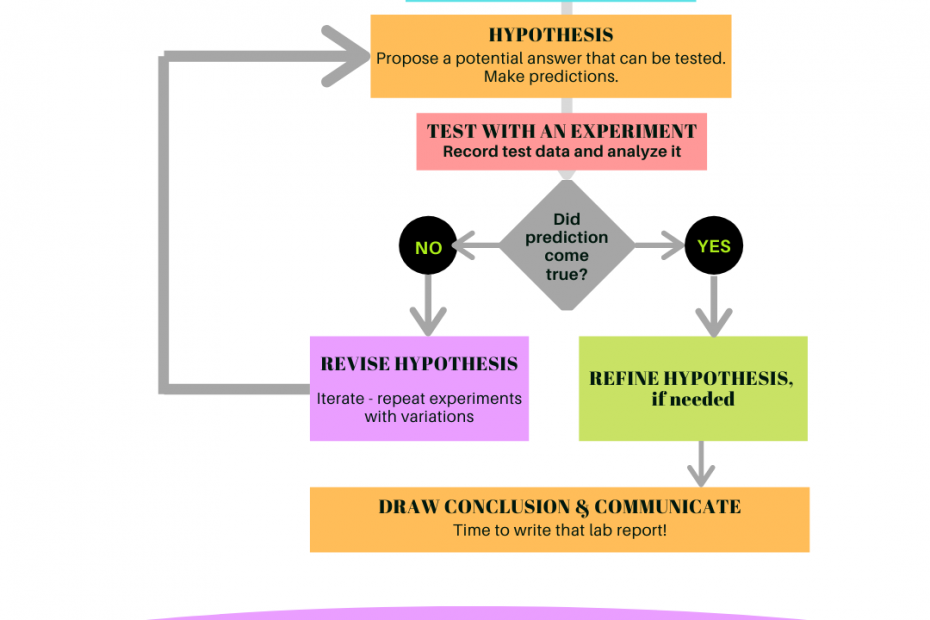What is the Scientific Method?
There are many subjects involved in the broad heading of science including biology, chemistry, physics, botany, astronomy, etc. But what do all of these subjects have in common? One of their similarities is that scientists in all these fields use the scientific method to conduct their respective research. Essentially, the scientific method is a system that allows a researcher to identify a problem or question, form a hypothesis, conduct research, gather data, and then form a conclusion.
Steps of the Scientific Method:
- Make an Observation – Observe and ask yourself questions.
- Form a Question – What is the problem with the thing you observed? Make sure to do some background research so that you’re ready for your experiment.
- Form a Hypothesis – Make an educated guess about the topic you’re experimenting on. Make sure that your hypothesis is something that can be tested.
- Test your hypothesis – Conduct your experiment
- Record Data – During your experiment, record all the observations you make with numbers or descriptions
- Review Results – Analyze your data and see if it matches your original hypothesis.
- Form a Conclusion – Record what you learned in your experiment and make a conclusion based on the results
- Communicate Results – Communicate your results and experiment data by writing a report or making a chart to compare your hypothesis with the actual outcome of the results.
Why is the Scientific Method Important?
The Scientific Method provides an unbiased and structured format that helps scientists conduct their research. Human bias is often a factor that jeopardizes accurate results in an experiment. The scientific method, however, is a process that allows the scientists to fully record data in a factual manner rather than with bias. Another reason why the scientific method is important is because it is easy to understand, which can help scientists focus more on their research than focusing on how to conduct their research
Sources:
Find out more at:
https://www.sciencebuddies.org/
https://science.howstuffworks.com/
- The Scientific Method - August 3, 2020
- The Cell Theory - July 26, 2020
